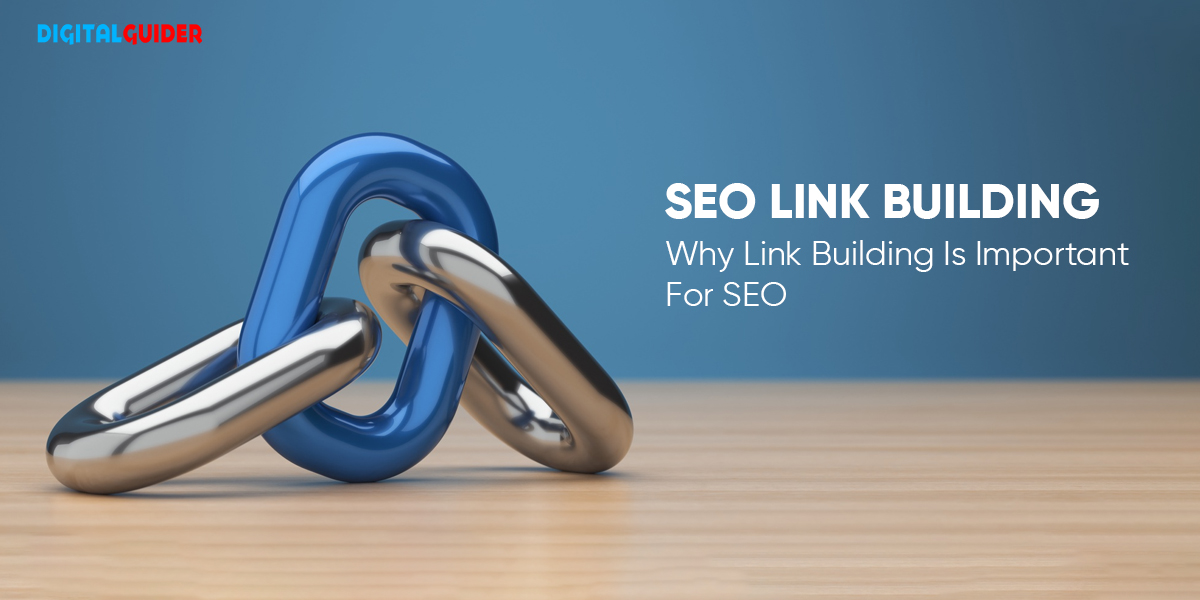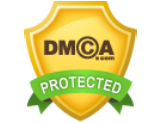As we all know, the best way to get more traffic to your website is to improve its domain authority and search engine result pages (SERPs). The higher your SERP ranking, the more quality traffic you will receive from Google.
But how do you improve it? —: SEO Link Building
Backlinking is necessary to improve your online brand visibility, drive more website traffic, and position your site at the top of search results.
Search engines discover new & valuable content via links and leverage them as a parameter to determine the quality of the content. Do you also want to rank higher and acquire quality links to boost site authority but don’t know how to do it right?
This complete guide on SEO link building will help you understand the basics of backlinking, why link building is vital for your website, and what link building SEO practices you can perform to make your site authoritative and relevant in the eyes of Google algorithms.
What is SEO Link Building?
Link building is the process of getting links from other websites to your site. It is an integral part of an off page SEO strategy. Building links is one of the most effective SEO tactics because backlinks signal to Google that your site is a valuable resource worth citation. Hence, sites with more quality backlinks tend to earn higher page rankings.
Remember: The most valuable backlinks in SEO—
- Are follow links
- Point to high-quality, functional pages
- Come from reputable websites
- Are naturally placed within relevant content
- Use natural anchor text or content
Generally, the more high-quality backlinks you can build, the better. You must pursue backlinks on different websites with different target pages and anchor texts. Otherwise, your backlink profile could appear spammy and unnatural.

Google’s algorithms are constantly evolving, but backlinks remain essential in how every search engine determines which sites rank for which keywords. All marketers and business owners build link-building SEO strategies to drive referral traffic & increase their site’s authority.
Why are backlinks important for your website?
Backlinks are like votes from other websites. Each vote (backlink) tells search engines: “This content is relevant, credible, and helpful.” So, the more “votes” from other sites you have, the higher your website will rank in Google results and other search engines.

In addition to driving brand awareness and referral traffic, backlinks can benefit your SEO performance. Many sites accrue backlinks naturally, but marketers often work to generate and maintain them.

When a website has more links attributed to it, Google search engine will see each backlink as a vote of confidence. Driving organic traffic through link building is a core of SEO marketing. That’s why, major SEO marketing companies find success and use it as one of their top strategies.
Also Read: SEO Marketing: 5 Steps to Build an Effective SEO Strategy?
The Different Types Of Backlinks
There are two types of backlinks:
- Dofollow links are those that pass authority to your website when they are clicked on.
- Nofollow links don’t pass on any authority, but they can still be helpful in other ways, such as brand recognition.

Nowadays, Google has gotten so good at detecting spammy links that it doesn’t trust any old link anymore—and for a good reason!
The Basics of SEO Link Building Metrics
SEO link building metrics can help you gauge the value of any content on your website or blog. These metrics play a huge part in the SEO competitive analysis & will show you whether a keyword is worth it or not based on both the URL & Domain Rating of your competitors.
- Domain authority: One of the most critical metrics for finding bad links. You can sort links to see only backlinks from a domain authority lower than 20.
- Number of links: The number of links you get in a month will determine your link velocity. A high link velocity might look suspicious to Google.
- Domain strength: Measures how strong an entire site is versus just a specific page. A site with a high domain authority score signifies an authoritative site.
- Referring domains: A ranking factor that can signal trust and authority to Google.
- Backlink type: Backlinks are essential for SEO metrics. Getting links to your website helps Google index and rank your content better.
- PageRank: Google’s link-analysis algorithm calculates the “relative importance” of your website or web pages.
- Linking root domains: Measures the quantity of your SEO link building campaign.
- Link position: The placement of your links determines their authority importance. Links added at the beginning of content are considered more valuable than those placed towards the end.
- Page Authority: Page Authority is used to measure link equity.
Must Read Blog: How to Audit Your Website for SEO?
How to do SEO Link Building?
Link building strategies mostly fall into one of the four following tactics:

1— Asking for Backlinks
When you ask a website to link to your site, it is referred as asking for links. You can request them to link to:
- Visual assets (like infographics)
- Blog posts
- Case studies
- In-depth guides
- Ebooks
- Resource page SEO link building
- Original research and data & so forth.
But you can’t possibly reach out to the folks at datasciencecentral.com and ask them to link to your page with cookie recipes, right? You need to pick websites related to your page since they are more likely to consider your request.
Recommended Blog: What Is SEO Skyscraper Technique: How to Get Quality Backlinks?
2— Buying links from Other Sites–
Same as above, but you offer them money (or some other compensation). It is a process of paying another website to insert a link to your website on one of their pages. Here, the goal is to buy as many links as possible to boost their rankings in Google search results. Buying links can come in different forms:
- Paid directory listings
- Paid guest posts
- Paid link placements
- Private Blog Networks
It is considered a black-hat or gray-hat SEO technique since it is against Google’s Webmaster Guidelines. According to the guidelines, link buying and selling are link schemes that intend to manipulate the PageRank algorithm. Buying links is also misleading for users.

3— Adding links on your own
This process involves adding links to another website or manually adding your link. Certain websites allow visitors to publish content on their pages with little to no moderation.
Like discussion boards, for example. You can easily register at a few and post some messages with your links in them.
For instance, you can manually add links to:
- Business directories
- Social media profiles
- Forums
- Communities, & Q&A sites (like Quora)
- User profile pages
- Blog comments & so on.
Manually adding SEO links may seem like an easy way to build links, but it is one of the least effective methods. Such links typically come from low-quality sources that Google does not want to give too much importance to.
This is because you create these links, which is like endorsing your website. This is not what Google wants when determining which websites deserve to rank higher in search results.
And since these links aren’t editorially given, they carry less value than others. While these links won’t actively help you, they won’t hurt you. Your best thing is to earn your links.
Also Read: What Is Barnacle SEO? 11 Tips to Leverage Other Sites’ Ranking & Traffic
When other websites link to yours without your asking, it is called an earned link. For example, SEMrush gets links from various websites for their SEO tool. And an excellent way to earn links is by creating high-quality EEAT content people want to link to. For backlinks to occur, your website content must be truly remarkable and valuable enough for other website owners to reference it on their websites.
Typically, links are added organically as a resource or a recommendation for further content readings. Here are some different types of content people tend to link to:
- Visual assets (infographics, charts, diagrams, etc.)
- Original research, statistics, and data (industry studies, surveys, proprietary research, etc.)
- Add Industry surveys, breaking news & online tools for users
- Add unique ideas and strong opinions (i.e., thought leadership)
- In-depth guides, tutorials, and others.
Look at your competitors’ backlink profiles to find more valuable content ideas.
Why do Earning Authority Links Matter to SEO Practices?
Links are like pathways on the internet, navigating visitors & search engines from one webpage to another. They’re a big part of exploring the digital world. But why do earning authority links matter so much for SEO? Let’s find out.
|
Credibility Enhancement: Authority links can be an endorsement from high-quality websites, which boosts the credibility of your website. |
Search Engine Recognition:
These links help your site gain recognition from search engines, improving its visibility in search results. |
| Visitor Traffic:
Authority links direct traffic from established websites to yours to increase your site’s visitor count. |
Builds Brand Trust: Authority links can help build trust with your audience & increase engagement in your content. |
Common Mistakes you Must Avoid in SEO Link Building
Are you sure you are building good backlinks for your website? Make sure you are not making the silly mistakes that we’ve mentioned below.
Buying links from illegitimate sources can damage your site’s trustworthiness and rank. Make sure you prioritize quality over convenience. Prioritize quality over convenience, and consider partnering with a reputable SEO agency for your link-building strategy if you buy links.
— Avoid Link Schemes:
Avoid link programs like peer-to-peer or over-the-top link exchanges designed to rig search results, as you may be penalized. Instead, create links naturally.
— Be Careful with Anchor Text:
Overusing exact-match keywords in your anchor text can be risky. Make your anchor text informative, relevant, and user-friendly.
— Consider Link Quality:
Not all backlinks are created equal. Avoid low-quality and spammy backlinks that hurt your brand and rank in search results. Choose backlinks from trusted and pertinent sources.
— Prioritize Content Quality:
Content forms the core of link-building. Content of low quality or copied from somewhere else will not generate significant backlinks. Take the time to create high-quality, in-depth, engaging content that will naturally drive backlinks.
To Sum Up
Backlinks are one of the most essential elements of SEO. You can increase your search ranking, visibility, and organic traffic with the appropriate link-building strategies.
Pay attention to the relevance, the domain authority, and the natural placement. Enjoy the journey, share valuable content, and watch your site’s authority grow in the ever-changing online world.
High-quality backlinks are a vital element of SEO. The right link building strategies will increase your search rank, your visibility, your organic traffic, and your website’s authority. Remember the importance of the link, domain, and natural placement.
Note that finding quality & authoritative links is challenging and requires experience in off page activities. In that case, you must head over to professional link building & SEO experts who understand how Google algorithms work and what proven SEO strategies can improve your website ranking, brand visibility, & traffic.
FAQs – SEO Link Building
Q1. Are directory submissions still effective for link building?
A1. Yes, high-quality directory submissions are effective for link building.
Q2. Do internal links affect my link-building activity?
A2. Yes, as it improves site structure and engagement on a website.
Q3. How often should I audit my backlinks?
A3. Quarterly, six-month, or annually backlinks should be audited.
Q4. What can I do to connect with other website owners for link building?
A4.
- Engage on social media
- Do press releases
- Offer guest posts or collaborations
Q5. Can I recover a lost backlink?
A5. Yes, by –
- Contacting the site owner.
- Try acquiring new backlinks
Q6. How can I recover from a Google penalty related to backlinks?
A6. Disavow harmful links in Google Search Console to recover from Google penalty.
Q7. How can I determine if a backlink is do-follow or no-follow?
A7. Check the link’s HTML for rel=”nofollow” or use the NoFollow extension to identify no-follow links.
Q8. Can websites rank without any link building?
A8. Websites can rank without link building by focusing on quality content and strong SEO, but it’s challenging.
Q9. Which tools can be used to analyze my backlink profile?
A9. Ahrefs, SEMrush, Moz, & Google Search Console analyze backlink profiles.
Q10. Should I avoid adding more links to sites with a referring domain from my website?
A10. No, it can still be helpful if they focus on variety and relevance.







